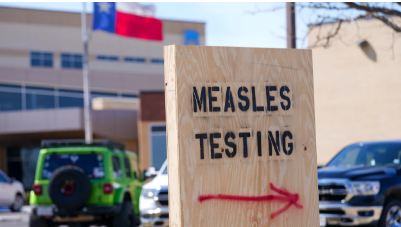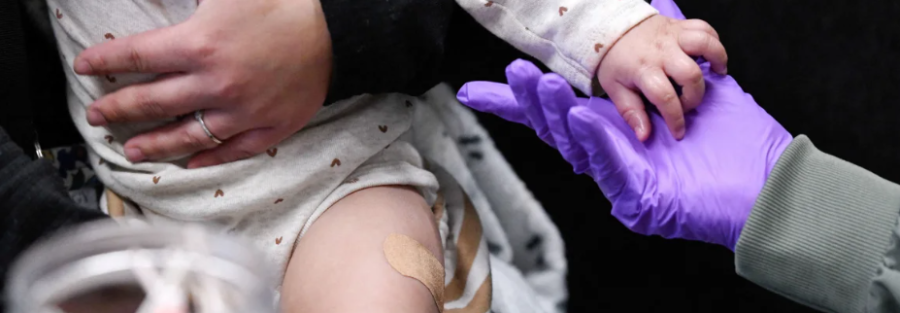A measles outbreak in Texas has escalated to 159 reported cases, prompting the US Centers for Disease Control and Prevention (CDC) to deploy personnel to assist local health authorities. The CDC announced its involvement on social media, emphasizing its commitment to containing the outbreak and supporting the Texas Department of State Health Services.
CDC’s Emergency Response Efforts
The CDC’s intervention is part of an Epi-Aid response, a rapid assistance program under its Epidemic Intelligence Service (EIS). Through this initiative, CDC officers provide on-the-ground support for urgent public health crises like disease outbreaks. According to the agency’s statement, these officers will work alongside Texas health officials for one to three weeks, offering technical expertise and assisting with real-time decision-making to help curb the spread of measles.
Previously, the CDC had supported Texas remotely by providing laboratory assistance and additional doses of the measles-mumps-rubella (MMR) vaccine. However, given the outbreak’s rapid growth, direct intervention was deemed necessary.
Current Status of the Outbreak
As of the latest update, Texas officials have reported 159 confirmed measles cases, with at least 22 individuals requiring hospitalization due to complications. The outbreak has been particularly concentrated in Gaines County, home to a sizable unvaccinated Mennonite community, where vaccine hesitancy remains a significant challenge.
Tragically, last week Texas confirmed the first measles-related death in this outbreak—a school-age child who was unvaccinated and had no known underlying health conditions. This marks the first reported measles death in the United States since 2015 and the first pediatric fatality from the disease since 2003.
Government’s Public Health Measures
US Health and Human Services Secretary Robert F. Kennedy Jr. spoke to Fox News about the federal response efforts in Gaines County. He highlighted the importance of delivering essential medical resources, such as vitamin A supplements and ambulance services, to affected communities. He also mentioned treatments such as budesonide (a corticosteroid), clarithromycin (an antibiotic), and cod liver oil, which have been used to support patients with severe symptoms.
Kennedy stressed that the federal response prioritizes community support rather than imposing mandates. “What we’re trying to do is really to restore faith in government and to make sure that we are there to help them with their needs and not particularly to dictate what they ought to be doing,” he stated.

Vaccine Hesitancy and Public Health Recommendations
Kennedy, who has long been associated with vaccine skepticism, discussed the role of immunization in controlling the outbreak. In an interview with Fox Business, he acknowledged the heightened risks faced by highly unvaccinated populations, such as the Mennonite community in Texas.
While he acknowledged the CDC’s recommendation for vaccination, he also recognized the widespread distrust in vaccines within certain groups. “There are people who should not be vaccinated in the community because they have autoimmune problems or other immune conditions. If you do get vaccinated, you are protecting those people from a possible spread,” he said.
However, in an opinion piece published by Fox News on Sunday, Kennedy stopped short of explicitly recommending measles vaccination, instead stating, “The decision to vaccinate is a personal one. Vaccines not only protect individual children from measles but also contribute to community immunity.”
The Importance of Measles Vaccination
Medical experts and public health officials overwhelmingly support vaccination as the most effective method of preventing measles outbreaks. The MMR vaccine is highly effective, providing long-term immunity in 97% of people who receive both recommended doses. Measles is a highly contagious virus that can cause severe complications, including pneumonia, encephalitis, and death—particularly in young children and immunocompromised individuals.
The resurgence of measles in Texas highlights the consequences of declining vaccination rates. Public health officials continue to urge communities to get vaccinated to prevent further transmission and protect vulnerable populations.
Moving Forward
With the CDC now actively engaged in Texas, health authorities hope to contain the outbreak before it spreads further. However, the situation underscores broader concerns about vaccine hesitancy and misinformation, which remain ongoing challenges in public health efforts.
For now, officials emphasize the importance of informed decision-making, increased awareness, and community engagement to prevent future outbreaks and ensure the safety of all individuals, particularly those most at risk.
Credits: CNN Health





